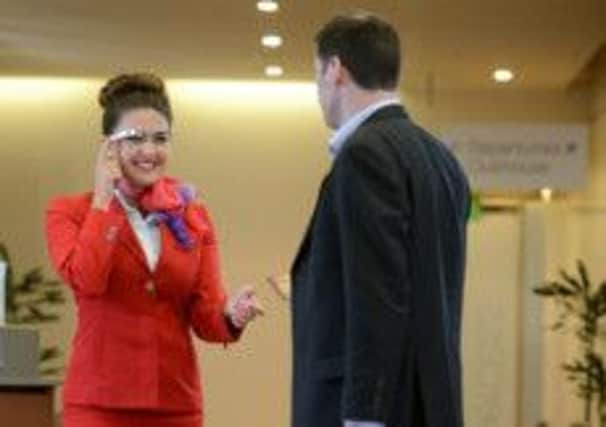Airline to find frequent fliers in a heartbeat


Virgin Atlantic is planning to track its premium travellers by issuing them with biometric wristbands which transmit their unique heart rhythm. It would alert staff to the whereabouts of prized passengers in the airport, so they could be more readily offered assistance and services.
The airline – which operates feeder flights to its Heathrow hub from Edinburgh and Aberdeen – has already tested Google Glass headsets to provide more information to pass to fliers.
Advertisement
Hide AdAdvertisement
Hide AdIn other recent innovations, EasyJet, Scotland’s biggest carrier, is among airlines using mini transmitters to send information to passengers’ mobile devices as they walk through airports. The beacons, being tested at Gatwick and Luton, transmit travel updates and could also send offers to fliers as they pass shops, or vouchers if flights are delayed.
Airlines hope a more individualised service will increase loyalty at a time when competition is expected to increase.
Virgin said it had equipped staff with Google Glasses after research showed passengers felt flying had become a poorer experience. The eyewear enabled staff to provide them with flight-related updates and translate information into different languages.
The airline said it could also be used in the future to indicate passengers’ favourite food and drinks.
Director of information technology David Bulman said it was now considering using a passenger’s heartbeat so staff could recognise passengers as they entered an airport.
Aviation commentator Sally Gethin, creator of Gethin’s Inflight News, said Virgin’s heartbeat plans showed airlines were prepared to push boundaries into potentially intrusive areas. She said:“The question to ask is – will this kind of invisible technology and data be regulated and will passengers be able to opt out?”
Dr Shuna Marr, a tourism lecturer at Edinburgh Napier University, said it was not clear whether biometric technology would prove acceptable.
“If it makes the whole experience sparkle for the customer and makes the check-in and serving process a lot more efficient, then it will be rolled out. However, if it’s seen as a gimmick or makes the customer sceptical at the authenticity of the service, then it will quickly die a death.”
Advertisement
Hide AdAdvertisement
Hide AdCharlie Makin, of digital technology developers Burn The Sky, said: “Airlines need to be very careful to focus on technology that delivers a genuine advantage. Consumers are wary of technology for the sake of it, and privacy and data protection are genuine issues.”
Spokesmen for United, which flies from Scotland to New York and Chicago, and for KLM, which claims to be Scotland’s biggest long-haul airline with flights via Amsterdam, said mobile technology would become increasingly important.